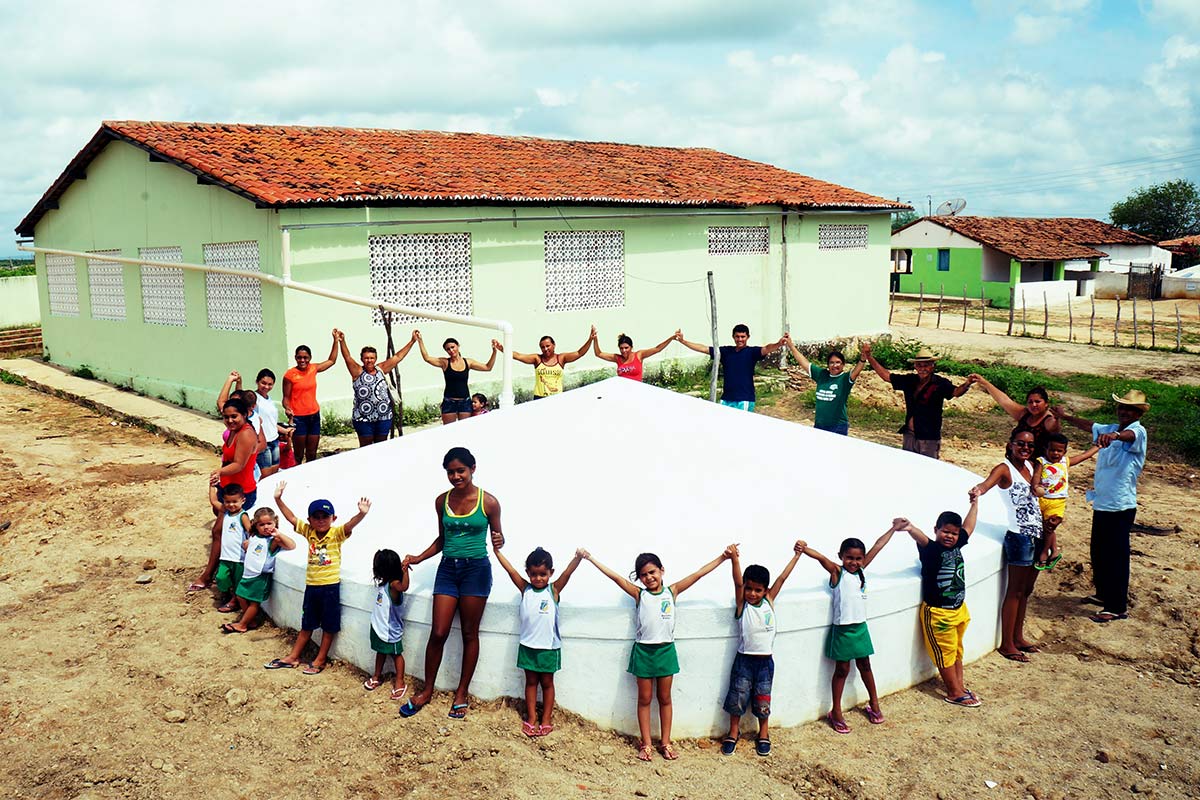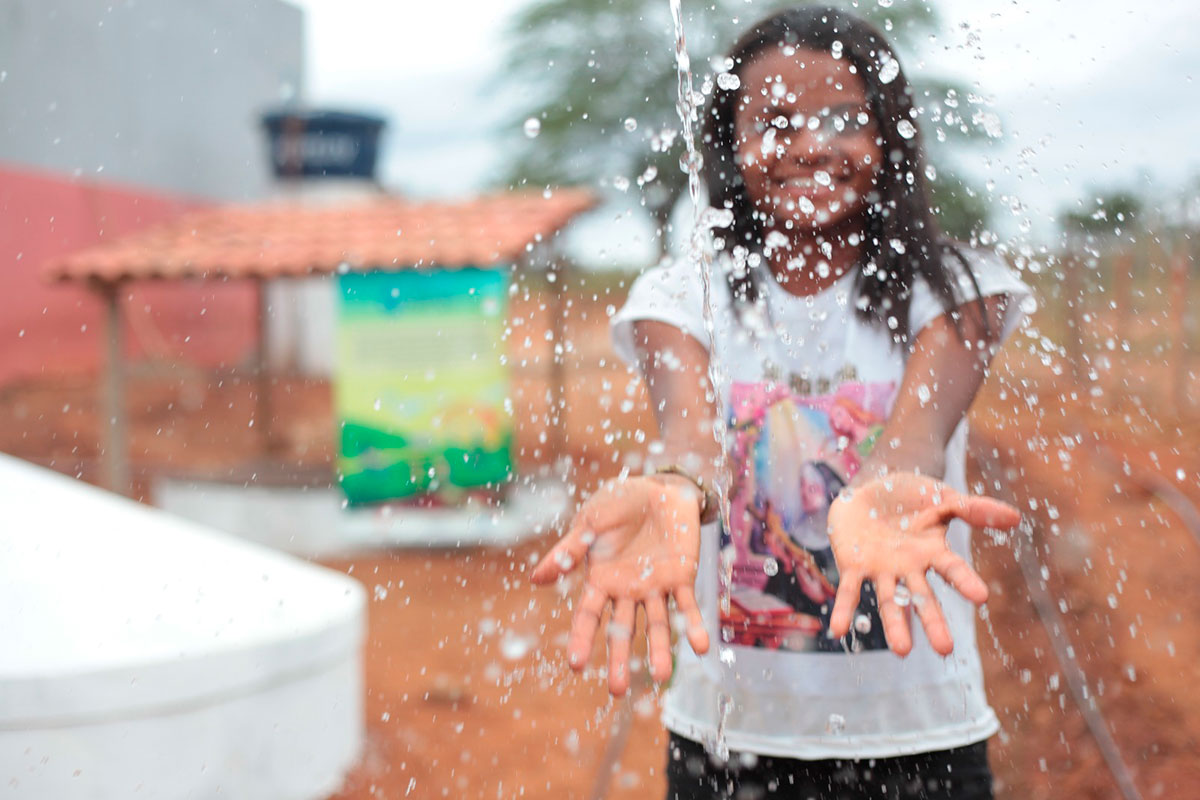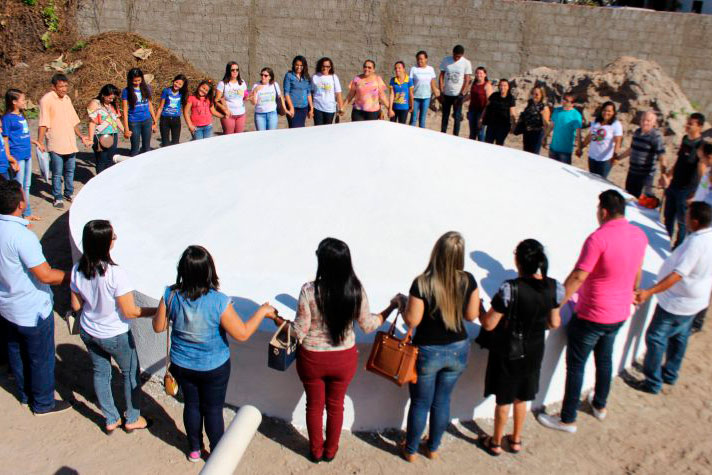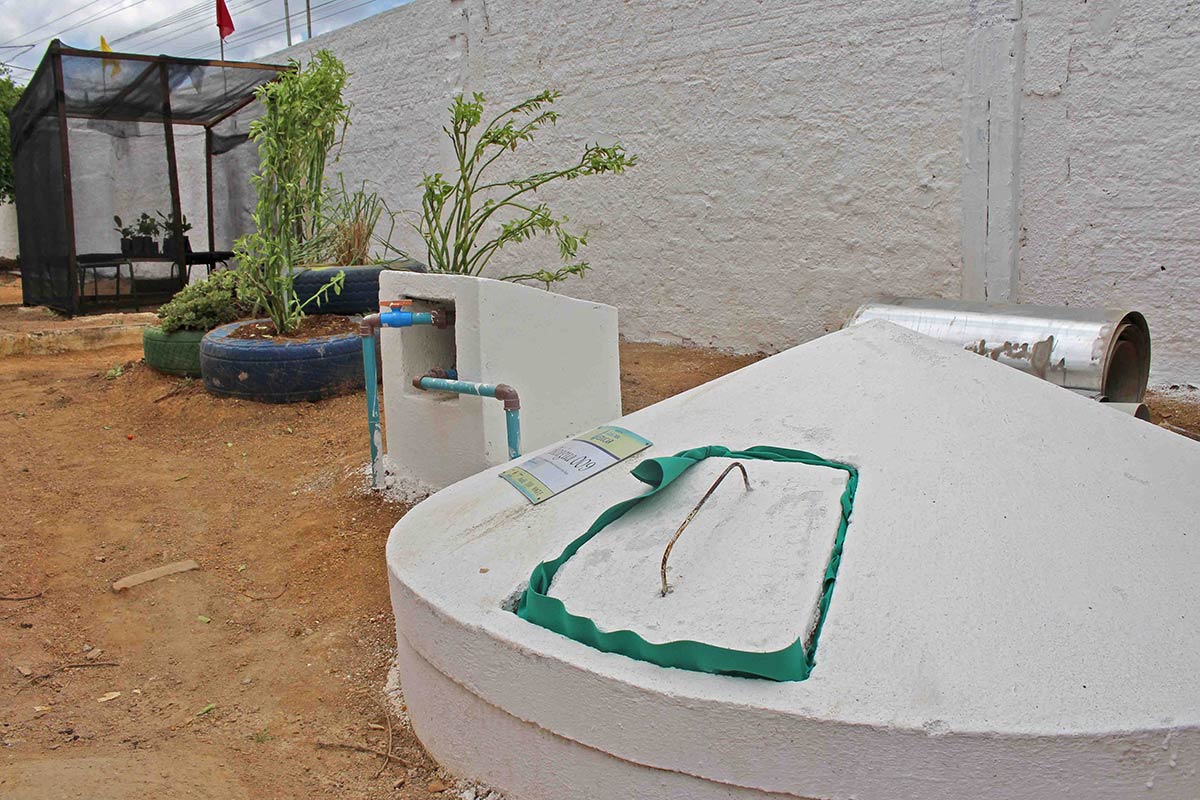Cisterns in Schools
In Brazil, 20% of schools do not have access to treated water, sewage, toilets, and electricity. The Cisternas Program, a public policy that stemmed from a partnership between civil society organizations, communities, and the government, has been working since 1999 to promote access to water for human consumption and food production in low-income households and public schools in rural areas.
A total of 1.3 million cisterns were built in more than 1,432 municipalities in 19 Brazilian states. Although access to water is advancing, sewage collection and treatment in the schools covered by the program are still virtually non-existent.
To join efforts and tackle this major social challenge, Instituto Iguá, under a technical cooperation agreement with BNDES and Tigre, started to implement decentralized solutions for sewage collection and treatment in schools, starting a new phase of the Cisternas Program. The initiative also includes environmental education actions for the entire school community.
In 2022, during the early implementation stage, seven schools in the state of Maranhão will be benefited. Instituto Iguá and Tigre fund the program and CPCD (Popular Center for Culture and Development) carries out the installation and environmental education actions, with the involvement and participation of the community.




